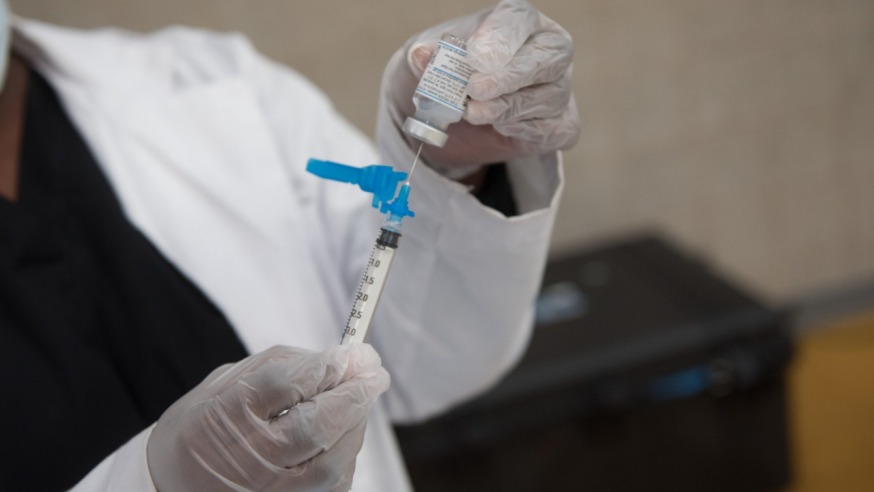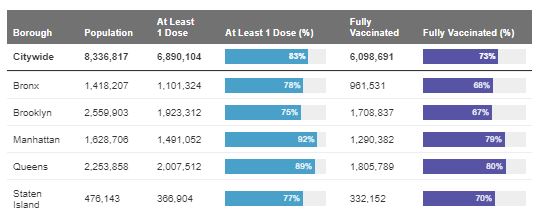
Two million Queens residents have received at least one dose of the COVID-19 vaccine (Photo by Michael Appleton Mayoral Photography Office)
Jan. 10, 2022 By Michael Dorgan
Two million Queens residents have received at least one dose of the COVID-19 vaccine, Borough President Donovan Richards announced Saturday.
Richards, citing Dept. of Health data, said Queens was the first borough in the city to reach the milestone for one shot being administered.
“To all our neighbors who continue to roll up their sleeves to get both vaccinated and boosted… thank you [for] stepping up on behalf of our shared borough,” Richards said in a statement.
“No borough has shown more strength, resilience and resolve in our collective comeback than our own,” he said, noting that Queens was considered the epicenter of the epicenter of the pandemic early on.
The two million doses of one shot equates to around 88.73 percent of Queens residents. The figure stood at 89 percent as of Monday.
Queens also leads the way in terms of residents who are considered to be fully vaccinated with Manhattan in second. About 80 percent, or 1,805,789 Queens residents, are fully vaccinated compared to 79 percent or 1,290,382 Manhattan residents. Staten Island comes in next at 70 percent followed by the Bronx, 68 percent, and Brooklyn at 67 percent.

City vaccination rates as of Jan. 10, 2022 (Photo Dept. of Health and Mental Hygiene)
A person is considered fully vaccinated if they have received two doses of the Pfizer, Moderna or AstraZeneca vaccine series, or one dose of the Johnson & Johnson/Janssen primary vaccine series, according to the Health Department.
Despite the borough’s high vaccination rates, Richards warned that the fight to beat the pandemic was far from over with the Omicron variant continuing to rage through the World’s Borough.
The number of coronavirus cases in Queens has spiked in recent weeks with the 7-day average rising from 725 on Dec. 5 to a high of 11,482 on Jan. 2. The rate dropped to 8,557 on Jan. 6.
COVID-19 hospitalizations have also increased in Queens with the 7-day average jumping from 16 on Dec. 6 to a high of 183 on Jan. 3. The rate dropped to 118 on Jan. 6.
The 7-day average for deaths for the same time period also rose with the 7-day average reaching a high of 14 on Jan. 6, up from 3 on Dec. 6. The figures include confirmed and probable deaths.
